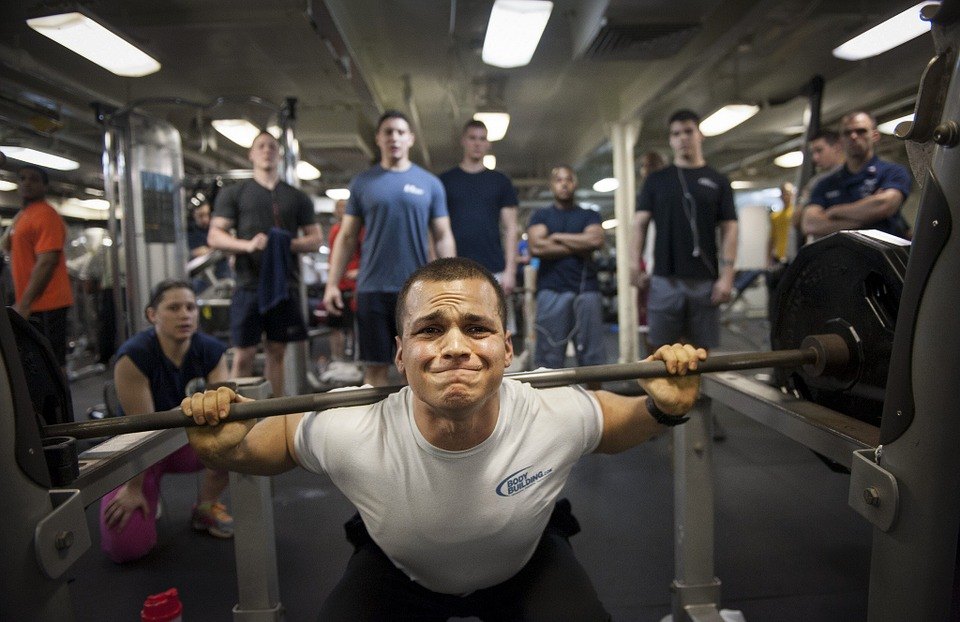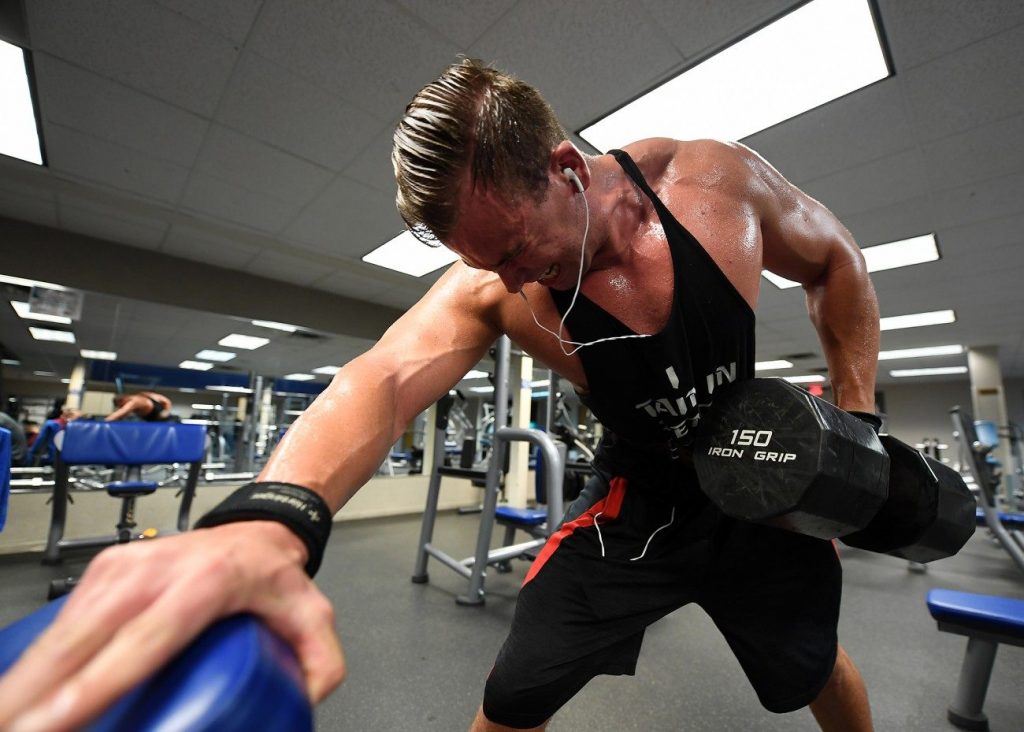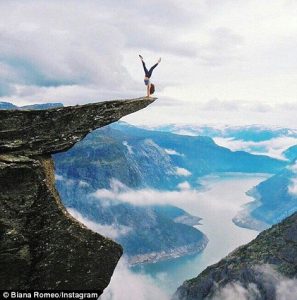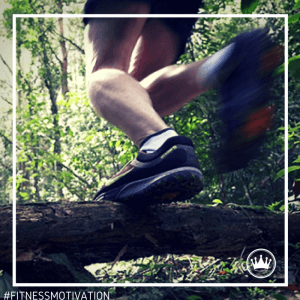Is social media putting you at risk?
If you are taking selfies working out in the gym or posting on social media about your progress, you may inadvertently be putting yourself at risk.
For better or worse, social media has penetrated our daily lives. It provides an avenue for motivation and accountability (think #motivationmonday or #gymgoals). It also has the ability to distract and delay. So which is it–better or worse?
Social media is great for motivation. You can follow awesome athletes that demonstrate the values and dedication you’re aspiring to. You can follow motivating organizations and gyms (we like to think of the FB and IG accounts of King’s Camps and Fitness as great sources of motivation) that drive you to push your workouts harder. Seeing posts about not giving in, running harder, or embracing pain to get the gains are all useful tools of social media to keep you on track when you are tempted to slack off. In all of these cases, social media appears to be advantageous in your pursuit of higher fitness goals.

Social media can also help with accountability. One of the best ways to stay true to your goals is by announcing to someone else the nature of your goals and order to be held accountable. (See our defining goals blog post.) In this case, when you post about your workout you are on your way to setting yourself up for success. Those that you’ve set as accountability partners will see when you’re racing toward your goals and also when you start to go off the rails–and hopefully help you get back on track!
So with motivation and accountability, it would seem like social media helps more than hurts when it comes to fitness. But, there’s another side to it that people often don’t think about.
Social media can hurt just as much as it helps.
Social media is distracting. We’ve all heard the warnings about trolling facebook while driving, but I bet you didn’t think that social media could hurt you in the gym! Picture this: Your fitness buddy just deadlifted 300 lbs. Whoa! What an accomplishment! You pull out your phone to capture the moment–just at the moment your friend starts to falter and needs your help. Bam! Or, maybe your friend is just fine, but instead of feeling happy for your friend, you start comparing yourself to him and how you can’t lift that heavy. But you feel pressure to keep up, so you grab the bar and instead of making smart and gradual gains you go for it. To capture the moment, you snap a quick selfie of yourself lifting it to best your friend. And BAM again! The result of this over-reaching results in a gruesome pulled muscles or torn tendon.

Or, how about all those push-up, squat, burpee, mileage challenges that make the rounds each month. Sure they help keep you on track if your fitness level is already on point. But growth challenges such as these are sometimes well above the fitness level of the participating individual, and are typically done outside the watch of qualified trainers to help avoid injury. Not to mention the social pressure to complete a challenge–even if the challenge starts hurting more than it’s helping. In many cases, these challenges that have you repeat the same exercise over and over and can cause strain in untrained bodies. So which would you rather have–the facebook post that states you completed the challenge (with the unwritten truth that you pulled a muscle that’s keeping you from a race next weekend), or the ability to race minus the dozen facebook likes you’d get from the “completed” challenge?

Of course, social media isn’t really RESPONSIBLE for injury. Facebook or Instagram isn’t physically doing anything to you. But, psychologically? That’s another story. I mean, somewhere along the way we’ve become obsessed with taking pictures of ourselves. As if, the work didn’t really happen unless I’ve taken a selfie, posted it online, and received a dozen or so positive feedback messages. (I suppose this is the new version of “If a tree falls….”) If you search the pages of amateur and professional athletes alike, there’s an abundance of photographs of them mid-stride, mid pull up, in the middle of their WOD, etc. These awesome shots are inspiring; however, one has to ask: Is the middle of your work out really the best time to take a picture of your progress? Does it really make sense to set a camera up so that you can get the best angle of you doing an exercise in isolation? I’m always curious about what need a person is trying to meet when they’re taking selfies mid-workout.
Our desire to capture each moment in a selfie has propelled popular race series, like the Rock ‘N Roll marathon, to set up selfie stations during their races in hopes that runners will veer OFF the course to snap a pic–not stay stationary on the course where other running athletes could be injured.
I’m sure you’re thinking these are silly examples. And true, physical injury usually happens when one is screwing around (think setting up your cell phone on a dumbbell to take a picture of you doing a Kipping pull-up just to post on social media). So it’s easy to take these wild examples and say that they don’t apply to you because you’d never be so dumb. But even if you’re smarter than the dumbest dumbbell, there are plenty of studies that show social media hurts us more than it helps us.
Take this Harvard Review study by Holly Shakya and Nicholas Christakis. After all was said and done, the authors concluded that “Most measures of Facebook use in one year predicted a decrease in mental health in a later year. We found consistently that both liking others’ content and clicking links significantly predicted a subsequent reduction in self-reported physical health, mental health and life satisfaction.”
There are many other examples of how we want to present ourselves and social media can distract from our planned goals and fitness objectives. My goal for this post is not to lambast facebook or other social media outlets–it does have positive attributes. But, I do hope that right now you’re asking yourself if you’re using social media for the right reasons. Instead of mindlessly trolling your friends’ feeds showing them mountain biking, running, and lifting (during which 1 hour of facebook trolling you only burn ONE CALORIE according to the National Institute of Health), why not get outside and do those things yourself? And do them for the simple reason that you WANT to do them, not so that you can rack up more likes than your best friend’s fitness post.
Social media can improve the way you manage your health via apps that help you track your progress or keep you accountable. It can also lead to feelings of “FOMO” (fear of missing out) or stupid behavior (doing a yoga headstand close to a cliff).
 image credit: Blana Romeo/Instagram
image credit: Blana Romeo/Instagram
To answer the question “Is social media putting you at risk?,” I’d say only if you let it. Your self worth, fitness goals, or general happiness does not need to be tied to social media. You can use social media for its benefits (e.g., fitness trackers) and skip the FOMO risks simply by choosing to believe yourself worth more than a dozen or so facebook likes.
So here’s my challenge to you. It doesn’t require push ups or burpees or hand stands on a cliff–just that the next time you’re running along a trail, or in the gym, or biking along the bumpy path, skip the selfie and be present in the moment. Because really. Even if a tree falls in the forest and no one is around to see it, it still falls.






